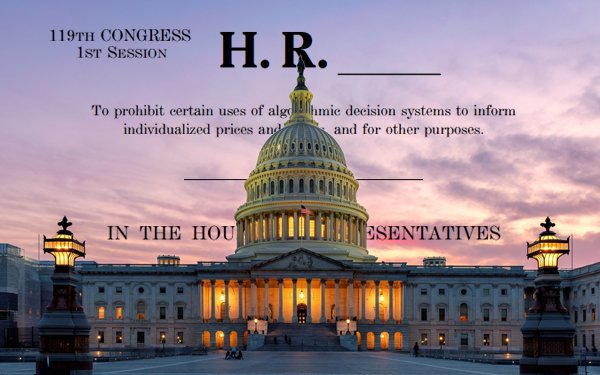
Lawmakers this week unveiled a bill
that would prohibit companies from engaging in so-called "surveillance pricing," broadly defined as using artificial intelligence to set a customized price for consumers based on their personal
information.
The "Stop AI Price Gouging and Wage Fixing Act of 2025," introduced by
Representatives Greg Casar (D-Texas) and Rashida Tlaib (D-Michigan), would prohibit companies from using artificial intelligence to set prices based on what Casar characterizes as "private
data."
For instance, Casar says in a summary of the bill, the measure would not allow a ride-sharing app to charge higher prices if a passenger's phone battery is
low.
The measure also generally bans companies from setting prices based on the websites people visit, their location history, address, race, gender or genetics.
advertisement
advertisement
"Giant corporations should not be allowed to jack up your prices or lower your wages using data they got spying on you," Casar said Wednesday on X, formerly Twitter. "Whether you know it or not, you may already be getting ripped off."
The measure would continue to allow companies to offer loyalty programs and discounts to
groups such as senior citizens or veterans.
The proposed legislation comes around two weeks after Delta Air Lines president Glen Hauenstein said the company plans to use
artificial intelligence to set prices for around 20% of domestic tickets by the end of the year.
This is a full reengineering of how we price and how we will be pricing in the
future,” he reportedly said,
adding that in the future, the company "will have a price that’s available on that flight, on that time, to you, the individual.”
That plan would almost certainly
be illegal if the new bill passes.
Earlier this year, the Federal Trade Commission published a report examining the techniques companies use when determining how much to charge
particular individuals.
That FTC report said
companies could collect “real-time information about a person’s browsing and transaction history,” and then decide whether to offer coupons based on assumptions derived from that
data.
“A pharmacy could choose to exclude routine, regular customers in a special promotion for over-the-counter medications or weight-loss supplements because the
pharmacy inferred that those customers are likely to buy those products anyway,” the FTC stated in the report.
“If a consumer is profiled as a new parent, the
consumer may intentionally be shown higher priced baby thermometers on the first page of their in-app search results, based on their residential zip code and time of purchase,” the authors
wrote.
When the FTC issued the report, it sought input from consumers and businesses about how
surveillance pricing had affected them. But several days later, Andrew Ferguson replaced Lina Khan as head of the agency and promptly withdrew the request for information.